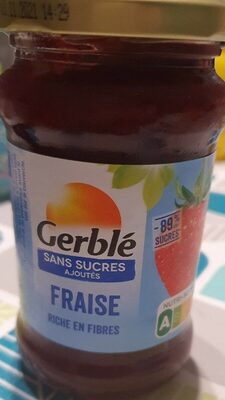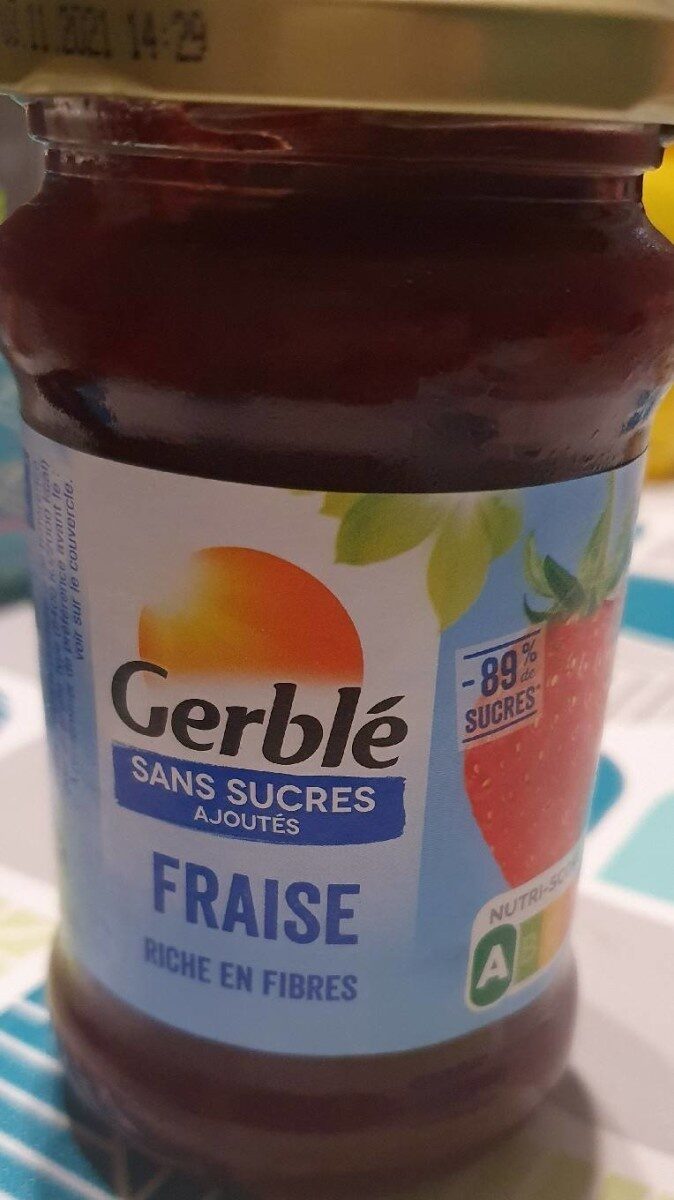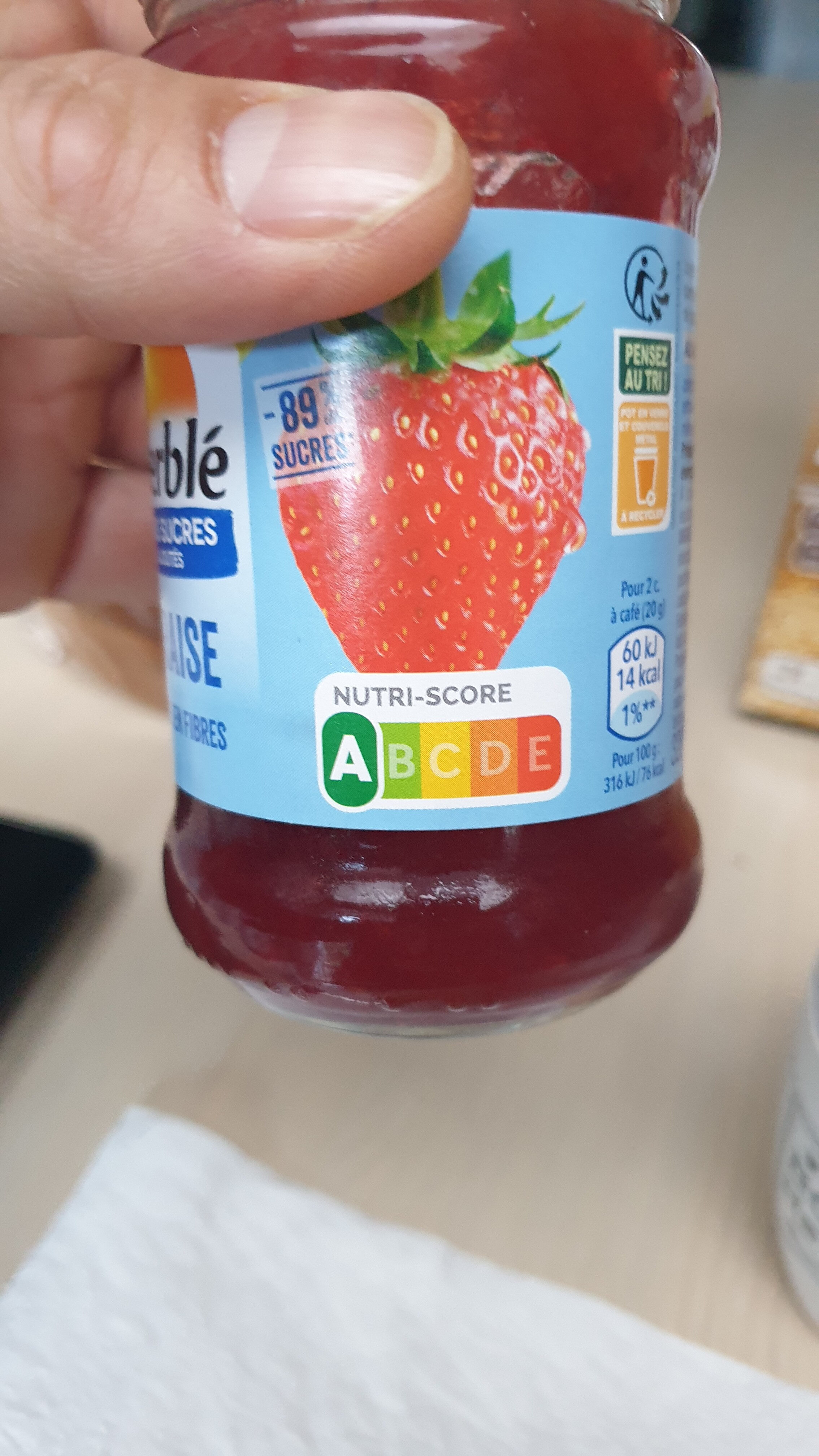Gerblé - No Sugar Added Strawberry Jam, 320g (11.3oz) - 320 g
This product page is not complete. You can help to complete it by editing it and adding more data from the photos we have, or by taking more photos using the app for Android or iPhone/iPad. Thank you!
×
Barcode: 3175681854482 (EAN / EAN-13)
Common name: Préparation aux fraises sans sucres ajoutés, à valeur énergétique réduite (66%), avec édulcorants
Quantity: 320 g
Brands: Gerblé
Categories: Plant-based foods and beverages, Plant-based foods, Fruits and vegetables based foods, Breakfasts, Spreads, Fruits based foods, Plant-based spreads, Sweet spreads, Fruit and vegetable preserves, Jams, Berry jams, Dietary jams, Strawberry jams
Labels, certifications, awards:
Low or no sugar, Source of fibre, Green Dot, High fibres, Made in the EU, No added sugar, Nutriscore, Nutriscore Grade A, With sweeteners
Manufacturing or processing places: Union Européenne
Stores: Magasins U, carrefour.fr
Countries where sold: Belgium, Côte d'Ivoire, France, Switzerland
Matching with your preferences
Report a problem
Data sources
Product added on by openfoodfacts-contributors
Last edit of product page on by foodvisor.
Product page also edited by beniben, charlesnepote, cirno, driveoff, eatshalal, inf, kiliweb, magasins-u, majo56, packbot, quechoisir, quentinbrd, roboto-app, scanbot, sebleouf, silviomoreno, tacite, thaialagata, torredibabele, yuka.L4geGoGIROkeTd_x05wIjAafF-j6A_EIEkdcow, yuka.MLx5YsGTQ-cmGvrv1q8vwSHiErn6HNBFHHhUow, yuka.N5dsGoGwT_wwR8rtwbxp2D6pOLjJBv18GCAxog, yuka.R2ZvYUxvcGFyL1lneDhFWXhCblEyUE5QKzVPSlFuL21KUFFqSVE9PQ, yuka.R3FwYkxQc1BxdWNBeHN3dnBBajErTTlQL0pLdERHeVZDYzQrSUE9PQ, yuka.Ry8wbUY1OGR2ZGtiZ2RvUDNCbk82L1ZiK3B5Q1ZsRzJBZTgxSVE9PQ, yuka.UOl-Yd6aIu08FsHL1olq_xWrH9bFD6FoEyU0og, yuka.VEs4YkFLMWNpdlFnd3NNZDhVajd3OElwN3EySlVGcTBBTU1NSWc9PQ, yuka.VlBrTk9ia3hqZWN3dXNRM3d6SGYvdE5WL29DN1IyQ0plN29VSVE9PQ, yuka.VzRVbUZMOHgvL3BRdnZNZzhBUDM1T2txMWNLQVUwbnRMT1VxSVE9PQ, yuka.WVl4WlNmZ1R1ZXRRbmNVUjd3UFN5djkrOTZhRlpscnZPYllQSWc9PQ, yuka.WnBBbkc2Y2loZFlQbHZaazF3clk5dEZRNmIybUJrNkxNclZKSVE9PQ, yuka.ZHZvRVNJYzlvL2t0dXZGbDlDT0oydDhyMW9hNUJHU0hLOGMxSVE9PQ, yuka.sY2b0xO6T85zoF3NwEKvlhUecYTvsgLvPhntoGGE4_mjKb7ZW91QwaTWCas, yuka.sY2b0xO6T85zoF3NwEKvllJgDPnQgy3kNx3jvV-l-Pi1Kr_ZWfNVxY3xYqs, yuka.sY2b0xO6T85zoF3NwEKvllNJVeDgnyvtHRr5hHWSn_GgNrfWPIAuvrLGGKs, yuka.sY2b0xO6T85zoF3NwEKvlldNCfvDmi7kOxvihlOx7PWhF4LLMeFx3ZOnKas, yuka.sY2b0xO6T85zoF3NwEKvlnJcT-rAohndCgH6kFWm-OvRK7XsXvNU563Xbqs.











